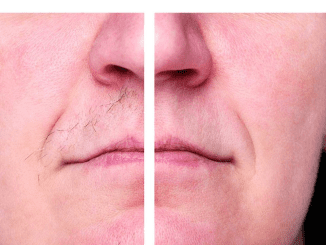Your tongue is much more than just a tool for speaking and eating; it’s a vital part of your health’s internal communication system. Often, subtle changes in your tongue can be the first signs of serious health conditions that need immediate attention. Ignoring these warning signals could delay a diagnosis, leading to potentially dangerous complications. In this article, we’ll explore key tongue conditions that should never be ignored and why they require prompt medical intervention.
Understanding the Role of Your Tongue in Health

The tongue is an incredibly important organ, playing a critical role in speaking, chewing, and swallowing. However, it also acts as a mirror for your overall health. A healthy tongue is typically pink, moist, and covered with small bumps, known as papillae. When there are changes in color, texture, or shape, it could be a sign of something more serious. These changes can range from mild and temporary to serious conditions that demand immediate medical attention.
When Should You Worry About Changes in Your Tongue?
Most tongue changes are harmless and temporary, but there are certain symptoms that shouldn’t be ignored. Persistent or unusual changes in your tongue’s appearance or function could point to underlying health issues. Here are the key warning signs that should prompt you to see a doctor immediately.
1. Persistent White Patches
One of the most common signs of a potential health issue is the appearance of white patches on the tongue. This condition, known as leukoplakia, is often caused by chronic irritation such as smoking or tobacco use. While leukoplakia itself is not cancerous, it can develop into oral cancer over time. If you notice white patches that do not go away or cannot be scraped off, it’s crucial to consult with a healthcare provider for a thorough examination.
2. Red or Sore Spots That Don’t Heal
If you spot red patches or sores on your tongue that persist over time, this could be a sign of erythroplakia, a condition that can often be precancerous. Unlike temporary sores caused by injury, erythroplakia tends to be tender or painful and may even bleed when irritated. Since this condition is more likely than leukoplakia to develop into cancer, it is important to seek medical attention right away.
3. Unexplained Lumps or Thickened Areas
Lumps or thickened areas on your tongue could be a serious warning sign, especially if they are hard or unmovable. While not all lumps are cancerous, hard, persistent lumps that do not go away can indicate oral cancer. Early detection of these growths is critical to improve treatment options and outcomes.
4. Tongue Pain or Sores That Don’t Heal After Two Weeks
While occasional canker sores are common, ulcers or sores that do not heal within two weeks require immediate attention. If you experience persistent pain or sores that seem to worsen over time, this could be a sign of oral cancer, infections, or other serious conditions. Don’t wait for the symptoms to go away on their own—make an appointment with your doctor.
5. Black or Hairy Tongue
Although a black or hairy tongue might sound alarming, it is often caused by an overgrowth of papillae and is not usually dangerous. This condition is typically linked to poor oral hygiene, smoking, or the use of certain medications. However, if the condition persists despite good oral care, you should consult a dentist or doctor to rule out other possible underlying issues.
The Connection Between Oral Cancer and Your Tongue
Oral cancer can develop in various areas of the mouth, including the tongue. In fact, the tongue is one of the most common locations for oral cancer to begin. Early signs of oral cancer often appear as subtle changes in the color or texture of the tongue, which can be easy to overlook. Being aware of the stages and causes of oral cancer can help with early detection.

What Causes Oral Cancer?
Oral cancer develops when the DNA of cells in the mouth or tongue undergoes mutations, leading to uncontrolled growth. Several risk factors increase the likelihood of developing oral cancer, including:
- Tobacco and alcohol use: Smoking and heavy alcohol consumption are the leading causes of oral cancer.
- HPV infection: Certain strains of the human papillomavirus (HPV), particularly HPV-16, are linked to an increased risk of oral cancer.
- Sun exposure: Chronic exposure to UV rays can cause cancer in the lips and surrounding areas.
- Poor oral hygiene: Not maintaining good oral health can contribute to oral cancer and other oral diseases.
Signs and Symptoms of Oral Cancer
Some of the early signs of oral cancer include:
- Persistent sores or ulcers that don’t heal
- Changes in the color of your tongue (e.g., white, red, or black patches)
- Difficulty swallowing or moving your tongue
- Unexplained bleeding or numbness in the tongue
- Loose teeth or poorly fitting dentures
How Doctors Diagnose Tongue Conditions

If you notice any unusual changes in your tongue, your doctor may use several diagnostic methods to determine the cause:
1. Biopsy
A biopsy involves removing a tissue sample from the affected area to look for abnormal or cancerous cells. This is typically the most accurate method for diagnosing oral cancer and other tongue-related conditions.
2. Imaging Tests
Non-invasive imaging tests, such as CT scans, MRIs, and ultrasounds, help doctors evaluate the size and spread of tumors. These tests are essential for staging cancer and planning the best course of treatment.
3. Endoscopy
An endoscope—a thin tube with a camera—may be used to look deeper into your mouth and throat for any signs of cancer that may not be visible from the outside.
Treating Tongue-Related Conditions
The good news is that many tongue-related conditions, including oral cancer, can be treated successfully if detected early. Treatment options depend on the diagnosis and may include:
- Surgery: Removing the affected area or tumor.
- Radiation therapy: Targeting cancer cells with high-energy beams.
- Chemotherapy: Using drugs to kill cancer cells.
- Immunotherapy: Boosting the body’s immune system to fight cancer.
Preventive Measures to Protect Your Tongue’s Health

While not all tongue-related conditions are preventable, there are several steps you can take to reduce your risk:
1. Avoid Tobacco and Alcohol
Both tobacco and excessive alcohol consumption are the primary causes of oral cancer. Quitting these habits significantly lowers your risk.
2. Maintain Good Oral Hygiene
Brushing and flossing daily, along with regular dental checkups, are essential for maintaining good oral health and preventing infections that can affect your tongue.
3. Get Vaccinated Against HPV
The HPV vaccine can reduce your risk of developing oral cancers associated with the virus. It is most effective when administered before exposure to HPV, typically during adolescence.
4. Protect Yourself from UV Rays
Using lip balm with SPF and limiting sun exposure can prevent UV damage to your lips and oral cavity, reducing the risk of cancer.
5. Eat a Healthy Diet
A diet rich in fruits, vegetables, and whole grains supports your overall health, including the health of your tongue. Avoiding processed foods and sugary beverages can also lower your cancer risk.
Conclusion
Your tongue is an important indicator of your overall health, and any persistent changes should be taken seriously. Whether it’s white patches, painful sores, or unexplained lumps, these symptoms may point to serious health issues, including oral cancer. The sooner you seek medical attention, the better the chances of early detection and successful treatment. Don’t wait for the problem to get worse—take charge of your health and make sure your tongue gets the care it needs.


